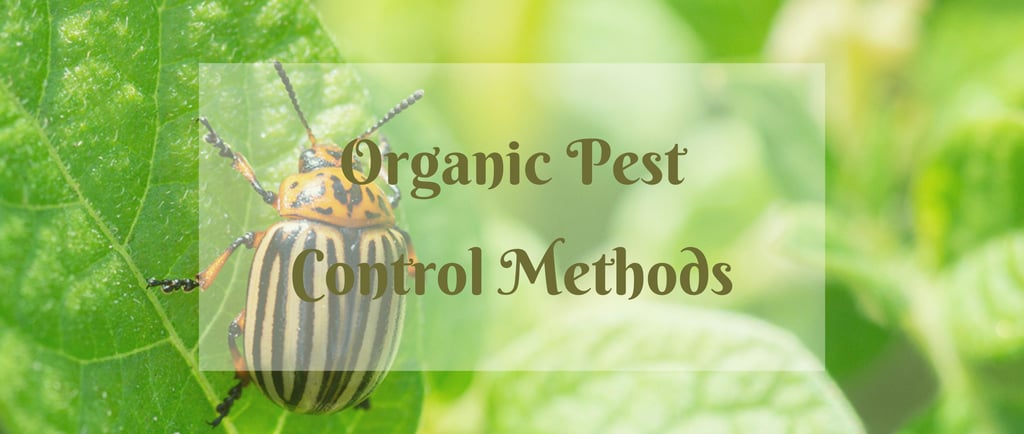Eco-Friendly Pest Prevention for a Healthier Home
Eco-friendly pest prevention helps create a healthy, pest-free environment while protecting the ecosystem.
9/6/20243 min read


Eco-Friendly Pest Prevention for a Healthier Home
Keeping pests out of your home is essential for maintaining a healthy living environment, but many commercial pesticides contain harmful chemicals that can negatively impact your health, your pets, and the environment. Fortunately, there are plenty of eco-friendly ways to prevent pests naturally, using safe, non-toxic methods that are just as effective.
Here’s how you can keep unwanted critters at bay while protecting your home and the planet:
1. Seal Entry Points
The first line of defense is preventing pests from entering your home. Many insects and rodents sneak in through small cracks, gaps, or holes around windows, doors, and foundations.
Regularly inspect your home and:
Seal cracks and crevices: Use caulk or weather stripping to close off gaps in windows and doors and fill in any cracks in your foundation.
Mastic Paint Seal: Pull away dirt from the foundation and apply the paint seal.
Sand barriers: Termite barriers applied at the foundation.
Install door sweeps: These create a tight seal under doors, blocking insects and rodents from crawling in.
Repair screens: Fix any tears in window and door screens to keep pests from flying or crawling inside.
2. Natural Repellents
Skip the harsh chemical sprays and use natural alternatives to repel pests. These options are non-toxic and safe for humans, pets, and beneficial insects.
Peppermint oil: Ants, spiders, and mice dislike the smell of peppermint. Mix 10 drops of peppermint essential oil with water in a spray bottle and spray entry points or affected areas.
Citrus peels: Many insects, including ants and roaches, are repelled by citrus. Leave citrus peels around entry points or rub them on windowsills and baseboards.
Vinegar: A mixture of white vinegar and water (1:1 ratio) works well to repel ants. Spray around entry points and areas where you’ve seen pests.
Cinnamon: repels ants, sprinkle it around your foundation.
Vanilla extract: Repels mosquitoes. Mix a tsp with cheap vodka and place into a 4 oz spray bottle. Apply when you go outdoors.
Epsom Salt: Apply about a 2" layer around the base of your home's foundation to keep cockroaches away.
Boiling water: Applied on ant mound will knock down an ant colony fast.
Brooms: Great for knocking down wasp nests. Only do this method if you are able to run very fast!
3. Keep a Clean Home
Pests are often attracted to food and water sources in your home. To make your space less appealing:
Clean up food spills and crumbs: Wipe down countertops, sweep floors, and store food in sealed containers.
Fix leaky pipes: Many pests, especially cockroaches and silverfish, are drawn to moisture. Repair leaky faucets and pipes to reduce water sources.
Empty trash regularly: Keep lids on trash cans and remove garbage frequently to avoid attracting pests.
4. Diatomaceous Earth
Diatomaceous earth (DE) is a naturally occurring powder made from fossilized algae that is highly effective at controlling crawling insects like ants, fleas, and cockroaches. When insects come into contact with DE, it damages their exoskeletons, leading to dehydration and death. Simply sprinkle DE around the perimeter of your home, along baseboards, and in cracks or crevices where insects may hide. This powder only works when it is kept completely dry, so it should only be used on the interior of home.
5. Herbs and Plants That Repel Pests
Certain herbs and plants naturally repel insects. Consider placing these plants in your garden or around entryways to deter pests:
Lavender: Repels moths, fleas, mosquitoes, and flies.
Basil: Keeps mosquitoes and flies away.
Marigolds: Deters aphids, mosquitoes, and even rabbits.
Rosemary: Repels mosquitoes and other flying insects.
6. Use Traps for Rodents and Insects
Traps are an eco-friendly way to manage pests without chemicals. There are humane traps for rodents that allow for catch-and-release, and sticky traps for insects like fruit flies and cockroaches. Be sure to place these traps in areas where pests are likely to hide or travel.
7. Nematodes for Lawn and Garden Protection
Beneficial nematodes are microscopic organisms that feed on the larvae of pests like fleas, grubs, and other soil-dwelling insects. These natural predators help keep your lawn and garden pest-free without the need for harsh chemicals. You can purchase nematodes at most garden centers or online, and they are easy to apply by simply spraying them on your lawn.
8. Eco-Friendly Pest Control Companies
If you prefer professional help, many pest control companies now offer eco-friendly or green pest control options. These services focus on natural, non-toxic treatments and prevention strategies to manage pests without using harmful chemicals.
Conclusion
By adopting eco-friendly pest prevention methods, you can keep your home free from pests while protecting the health of your family and the environment. From sealing entry points and using natural repellents to incorporating pest-repelling plants, there are plenty of safe and effective ways to manage pests sustainably. Small changes can make a big difference in creating a healthier, more eco-conscious home.
